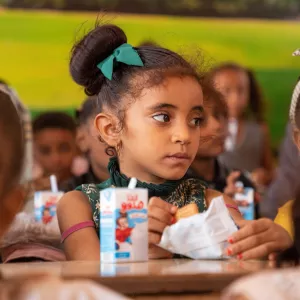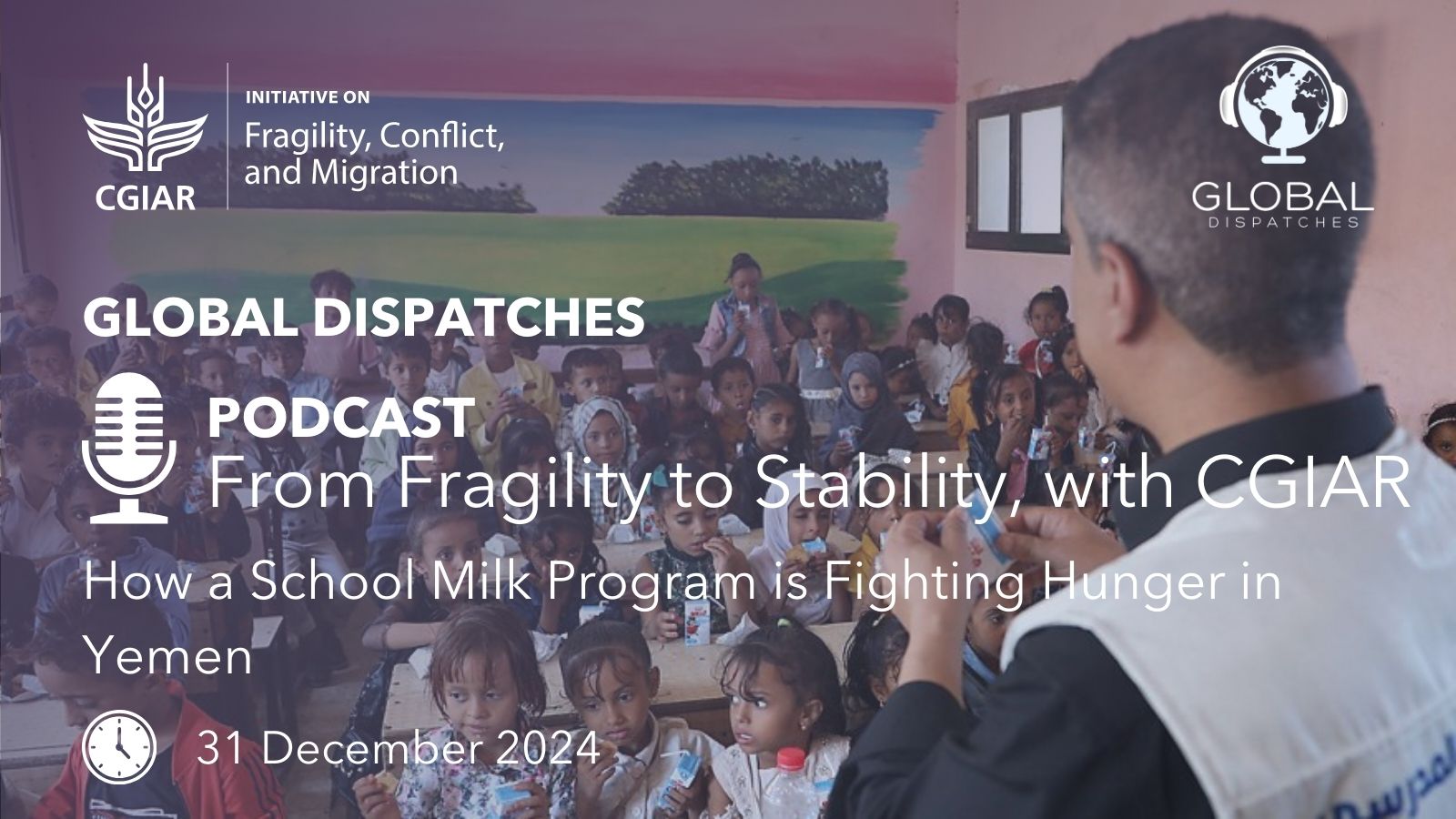Evidence-based school feeding improves child learning
CGIAR INITIATIVES Fragility, Conflict, and Migration Primary Impact Area Nutrition, health & food security Related Impact Areas

- Result
Evidence-based school feeding improves child learning
The World Food Programme (WFP), HSA Group, and the World Bank acknowledged IFPRI’s research on the effectiveness of school feeding programs in emergency settings. WFP plans to leverage the findings to secure donor funding, while the World Bank recognized the study’s value in shaping nutrition-sensitive social protection programs. The HSA Group emphasized the importance of private-sector collaboration in advancing sustainable school feeding initiatives.
In fragile and conflict-affected regions, school feeding programs (SFPs) serve as a crucial intervention to combat child malnutrition and enhance educational outcomes. However, the effectiveness of these programs in emergency settings has often lacked rigorous, evidence-based support, making it challenging to secure sustainable funding and optimize implementation.
To address this gap, the International Food Policy Research Institute (IFPRI), as part of the CGIAR Fragility, Conflict, and Migration (FCM) initiative, conducted a randomized controlled trial assessing SFP effectiveness in a humanitarian context. The findings, supported by private sector partners such as HSA Group and Tetra Pak, were presented during a high-level policy seminar titled “Towards Advancing Children’s Nutritional Intake: Taking Stock of Evidence-Based Effective School Feeding Programs in the Middle East and North Africa.”
Evidence-Driven Policy Change and Private Sector Engagement
The seminar brought together key actors, including representatives from the private sector, donors, and international organizations. Discussions underscored the importance of data-driven advocacy, with stakeholders such as the World Food Programme (WFP) emphasizing that robust evidence is crucial for securing donor funding.
Hala Suliman, Regional Programme Policy Officer at WFP, noted that the study provides critical insights into the viability of ultra-high temperature (UHT) milk as a safe and logistically feasible option for emergency SFPs. While fresh milk presents hygiene and supply chain challenges, UHT milk—despite minor reductions in nutritional value—offers a practical alternative when paired with dry snacks to enhance acceptability among children and families.
From a private sector perspective, Michael Aron, Chief International Affairs Officer at HSA Group, highlighted the seminar’s role in bridging the gap between commercial and public health initiatives. He acknowledged that IFPRI’s findings offered a compelling case for corporate involvement in school feeding efforts, reinforcing the benefits of cross-sector collaboration to improve food security in crisis-affected regions.
Shaping the Future of School Feeding in MENA
The seminar not only presented groundbreaking research but also set the stage for actionable next steps. The results demonstrated significant short-term improvements in child learning, cognition, physical and mental health, reinforcing the need for further investment and partnerships to expand and refine SFP models. Encouraged by the findings, private sector representatives expressed interest in deepening collaboration with humanitarian agencies to enhance food delivery mechanisms.
By leveraging rigorous research to inform policy and programmatic decisions, IFPRI, as part of the CGIAR FCM Initiative, in collaboration with HSA’s “School Milk Initiative”, are contributing to the transformation of school feeding strategies in the MENA region. With growing stakeholder engagement, this partnership has the potential to drive long-term improvements in child nutrition and resilience in fragile contexts.
CGIAR Centers
IFPRI
Partners
HSA Group, World Food Programme (WFP), TetraPak





